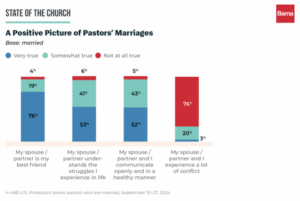
WASHINGTON (BP)–Saudi Arabia is the world’s most repressive country for Christians, according to a new report by an organization that ministers to the persecuted church.
Open Doors International rated the Middle East regime first in a top 10 dominated by Islamic-controlled countries. Saudi Arabia easily outdistanced all other countries for the top spot with a rating of 81.5 in ODI’s July report.
The other top 10 members, in order with point totals, are Afghanistan, 72.5; Sudan, 70; China, 69; Yemen, 66.5; Morocco, 64; Iran, 63; Libya, 62.5; Tunisia, 62; and Egypt, 60.
Congress recently has targeted Sudan for special attention.
On July 27, Sen. Sam Brownback, R.-Kan., introduced the Sudan Peace Act in an attempt, with bipartisan support, to change the United States’ policy toward the East African country. The bill calls for wider distribution of food outside the United Nations system; an improved peace process to end a lengthy civil war that escalated a decade ago; human rights monitors; a registry of names of the women and children sold into slavery; and implementation of the current sanctions system established by the president.
Earlier this summer, the Senate voted as part of the Foreign Operations spending bill to give humanitarian aid to the southern Sudanese through organizations not affiliated with the National Islamic Front government in Khartoum.
Sudan’s Islamic regime also was singled out for special condemnation in resolutions by both houses.
The Senate passed without opposition a resolution in early July criticizing the Sudanese government for its support of terrorism and for human rights violations. The measure also condemned the slave raids the government-supported troops have conducted against primarily Christian villages in southern Sudan and called for an end to slavery.
The House of Representatives adopted similar, non-binding legislation by a 416-1 vote, with only Rep. Ron Paul, R.-Texas, in opposition.
In announcing the Sudan Peace Act’s introduction, Brownback said in a written release he is “convinced of the urgency of this situation. This year, the war will either escalate because of the much-anticipated oil revenues which the government will receive to purchase new weapons. Or international pressure will be brought to bear to end this brutal war which has continued far too long.”
Brownback, who visited Sudan as part of a congressional delegation in early June, said in a written release the visit confirmed what he had heard — “this is among the most victimized civilian populations in the world.” Sudan has “the largest refugee population in the world,” he said.
Reps. Donald Payne, D.-N.J., and Thomas Tancredo, R.-Colo., traveled with Brownback.
About 1.9 million people have died during the last decade in a civil war between the Khartoum regime and the rebel forces of the Sudanese People’s Liberation Army and as a result of war-related causes, according to the U.S. Committee for Refugees. The regime supports raids by its troops of Christian and animist villages in the southern part of the country, but sometimes even of moderate Muslim areas. The soldiers frequently kill men and kidnap women and children to take them back as slaves to the northern Sudan or another country. The troops also burn crops and slaughter livestock. The regime conducts bombing campaigns, with hospitals among the targets.
At least 100,000 Sudanese died of starvation last year as a result of the regime’s intentional withholding of food aid to its people, and about 4.3 million have had to flee their homes in the last decade, Brownback said.
The report by Open Doors International is done periodically to help the organization know where its ministry to the persecuted church is most needed, according to its Internet World Wide Web site.
The world watch list, as it is titled by ODI, is compiled from a questionnaire completed by the organization’s staff, experts on the country, travelers and contacts in the country. The topics on which the ratings are based include the legal status of Christians, the attitude of the regime, the freedom of the church to organize events and the treatment of individual believers.
The July report ranks 88 countries in descending order from Saudi Arabia to Kenya, which has a rating of 10. Thirty-three countries are grouped together with scores under 10, which generally means they have freedom of religion.
ODI’s ministry began in 1955 with the outreach of Brother Andrew of Holland. He began by smuggling Bibles to Christians in Eastern Europe and the Soviet Union.
The list is available at ODI’s website, www.solcon.nl/odi.
Reports on persecution, as well as links to other organizations dealing with the issue, are available at the Internet site of the International Day of Prayer for the Persecuted Church. The address is www.persecutedchurch.org.
The 1999 International Day of Prayer for the Persecuted Church is Nov. 14. The Southern Baptist Ethics & Religious Liberty Commission is an active participant in the observance.











